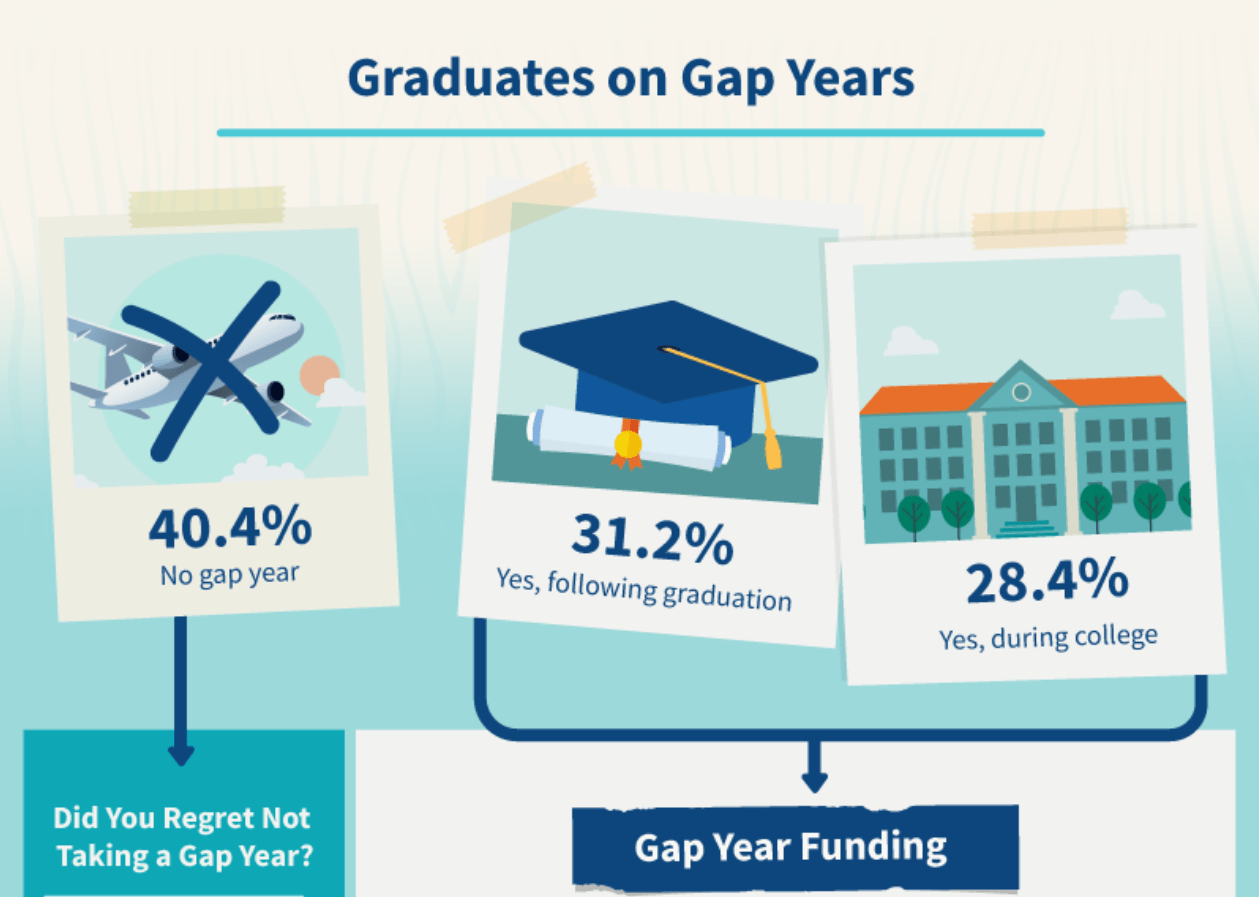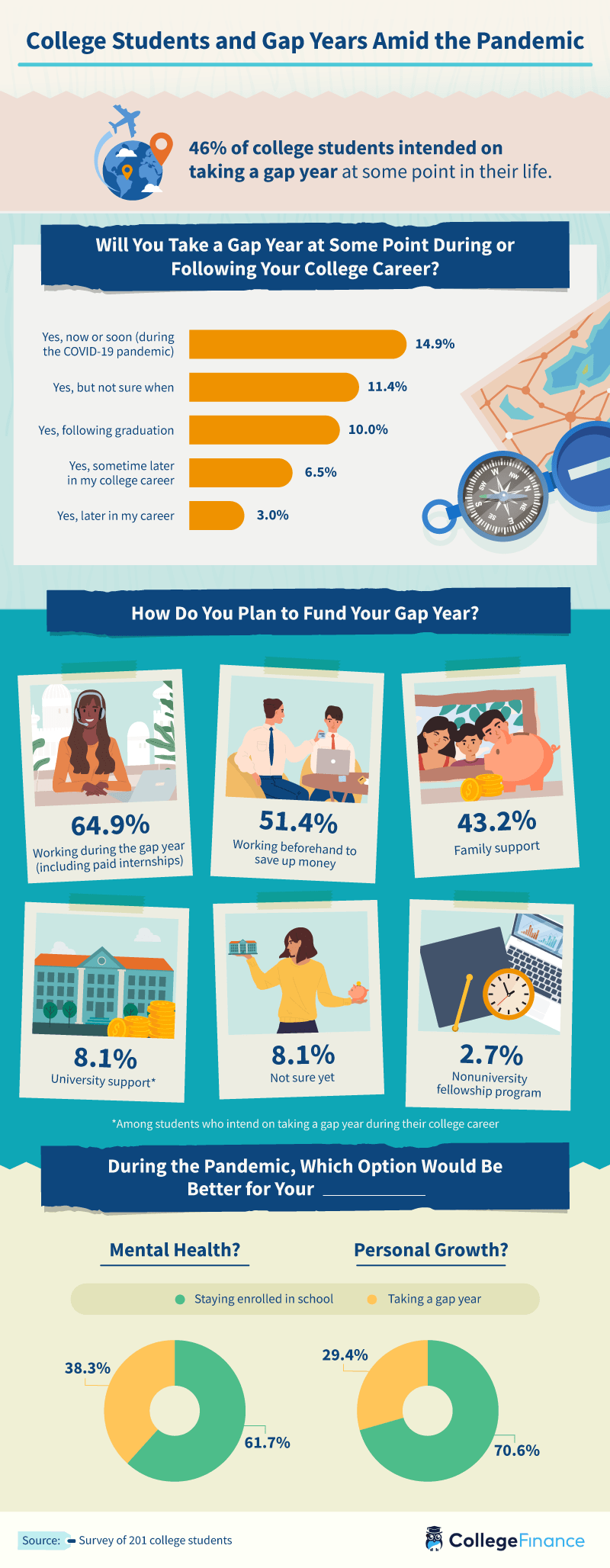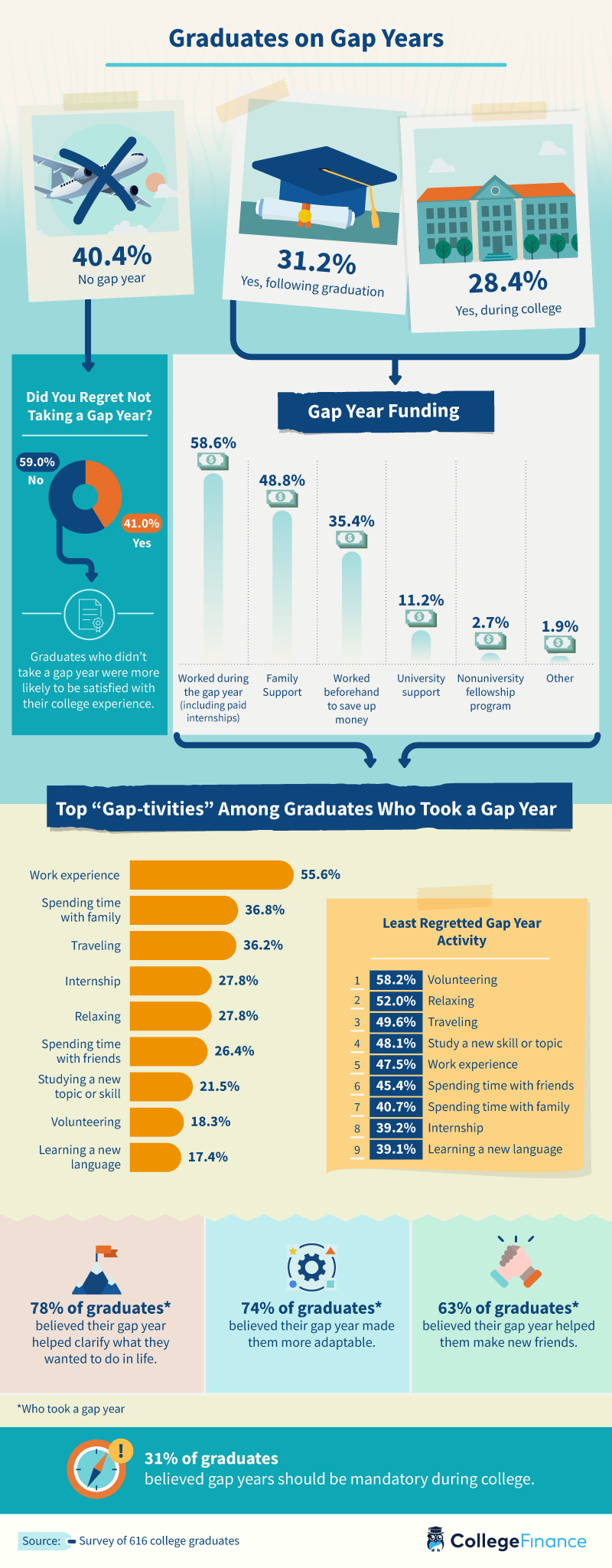As far as education goes, the COVID-19 pandemic has been a roller coaster. Remote learning, college students facing tons of uncertainty, and, of course, schools themselves dealing with financial strain. While many have indeed opted to take the online route when it comes to college, there has also been a renewed interest in gap years in recent months – both after high school and after college – before starting down a career path.
Q2 2020 hedge fund letters, conferences and more
Taking a gap year isn’t a new concept – it’s something people have done for a long time. But given the times we’re living in, it seems to make sense that many incoming college students would opt to take a year off before committing to school rather than choose to start online or deal with the ups and downs of the pandemic in terms of when they can attend classes in person.
To find out what students’ perceptions of taking a gap year have been throughout the pandemic, College Finance conducted a survey of over 1,000 students, grads, and even hiring managers. The results were incredibly surprising at times and shed some new light on the concept of the gap year altogether.
When Should You Take a Gap Year?
The survey, interestingly enough, found that 46% of college students said they were intending on taking a gap year at some point. Nearly 15% of those polled said they were planning to take one either imminently or in the near future (in other words, during the pandemic), while 11.4% said they were planning on a gap year but were unsure as to when it would be.
Ten percent of respondents said they were planning a gap year after college, while almost 7% said they would take one at some point in their college career. But what are their plans when it comes to funding a gap year? About 65% said they planned to work during their gap year or take paid internships. More than 51% planned to work before starting one to save up the money to live on during their time off. More than 2 in 5 of those surveyed said they had family support in place, while roughly 8% said they weren’t yet sure how they’d fund their gap year.
Mental Health and Personal Growth
One big question in regard to gap years is how they actually impact mental health and personal growth. When polled about whether taking a gap year is better for mental health than staying in school, a surprising 61.7% of those polled said they felt that staying in school had a more positive impact on their mental health than taking a gap year. In the same vein, almost 71% of respondents said they felt their personal growth was more positively impacted by staying in school.
What Graduates Have to Say
Perhaps the most interesting perspective when it comes to gap years is from those who have (or haven’t) chosen to take one in the past. The survey polled a number of college graduates to get their perspective on the practice. Over 40% of grads did not take a gap year, more than 31% took one after college, and just over 28% opted to take theirs during school.
Of those who took a gap year, 59% said they didn’t regret it, while 41% did. Those who didn’t take one, however, were ultimately more satisfied with the college experience than those who did.
What were some of the things grads did when they took a year, though? As it turns out, almost 56% percent of graduates who took a gap year actually used that time to get work experience. About 37% focused on spending time with their family, while more than 36% traveled, and nearly 28% just relaxed.
Only 18.3% of grads said they volunteered during their gap year, though volunteering was the least regretted activity among all of the activities included in the survey. More than half of gap year grads said their least regretted activity was traveling.
Gap Years and the Job Market
While taking a gap year might seem to be a harmless and effective way to regroup after school and before pursuing a career, the looming question remains as to whether it actually has an impact on navigating the job market. College Finance surveyed hiring managers as part of the study and found that more than two-thirds of them feel taking a gap year is important and beneficial – particularly during the COVID-19 pandemic.
An overwhelming 80% of hiring managers said gap years are actually important for personal growth, and, overall, they thought 14 months was a reasonable amount of time to take one.
But what do gap years mean for getting hired? Are hiring managers more or less likely to hire someone who’d taken a gap year? Over 1 in 5 said they were more likely to hire a candidate who took one, while two-thirds said they were equally as likely regardless of whether or not someone took one. When it comes to salary, 72.4% said they’d offer the same pay to a candidate no matter if they took a gap year or not.
Overall, it seems that gap years are still a mixed bag when it comes to people’s perception of them. It may very well be the best time to take one, though, if you’ve ever considered it. Given the uncertain state of education and the job market right now, taking some time to regroup might just prove to be the best course of action.









